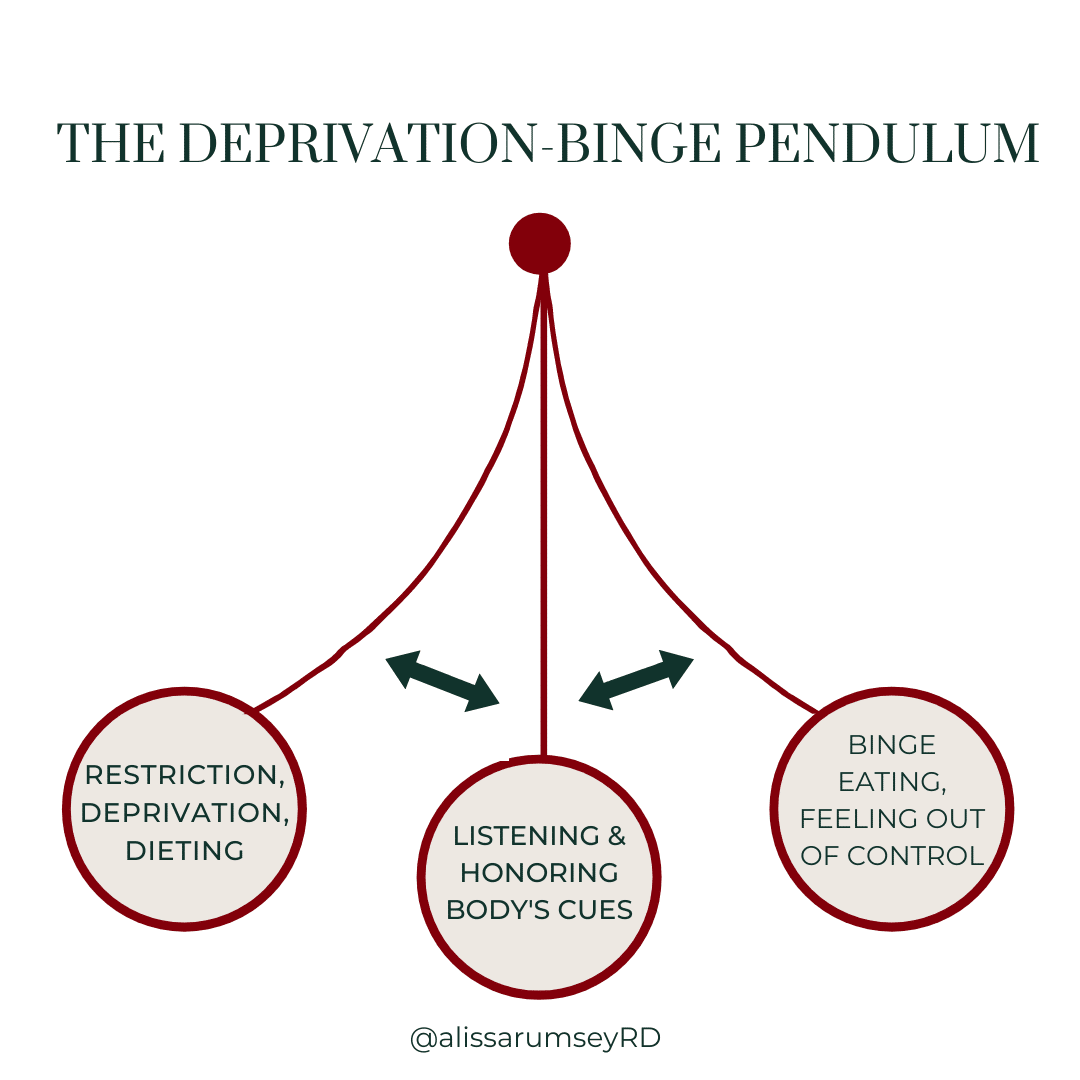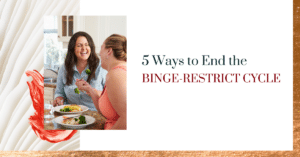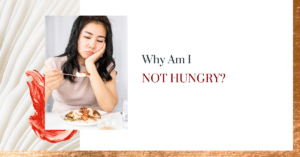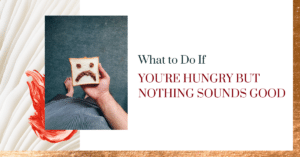The Science Behind Your Halloween Candy Binge (and How to Prevent It)

As Halloween candy takes over store shelves, advice on how to resist such candy takes over nutrition headlines. But the science of eating behavior shows that the more we try not to eat something, the more likely we are to overeat it. So before you vow to keep all of the candy out of your house or curse your lack of willpower, understand the science of a Halloween candy binge – and make peace with candy this year.
This blog post was been reviewed and updated on October 20th, 2021.

The Science of a Candy Binge
Research in an area called food habituation shows that the more you are exposed to something – whether that be a food, a noise, or a certain smell for instance – the less your brain cares about it. whether that be a food, a noise, or a certain smell—the less you notice or respond to it.
For example, after living in New York City for more than 13 years, I’ve become habituated to the near-constant noise. The car horns, the ambulance sirens, the garbage trucks at all hours of the night—at this point, it’s mostly background noise. Yet whenever a friend from out of town comes to visit, they always comment on how loud it is. It is always funny to me because I hardly hear it anymore; I have almost no response to it. However, my out-of-town friends who live in quiet suburbs are not used to these sounds, so their heart rate jumps whenever a siren goes off, and they barely sleep, kept awake by the sounds of the city.
Habituation also happens with food. If you restrict certain foods or try to keep them out of your house, it makes these foods more exciting and desirable. You tell yourself you can’t have them, and then your brain fixates on them. It makes sense that, when you finally get access to those foods, you find it hard to control yourself or stop eating. Your body has no idea when you’ll allow yourself to eat that food again, so it keeps driving you to eat more and more.
On the other hand, when you allow yourself to eat all sorts of foods and keep these foods around you, they become less exciting, and the desire to eat them diminishes. This has been shown with a variety of foods including potato chips, mac and cheese, pizza and chocolate.
It makes sense: Say you were told you could eat pizza for dinner every night. While that might sound great on night one, by the fifth or sixth night, the pizza will have lost its allure and you’ll likely eat fewer slices than you did the first night. Just as city dwellers adjust to street traffic noise or stop being as bothered by bad smells, people get habituated to a food the more they eat it.
The opposite is also true. When you don’t have access to certain foods, the more your brain focuses on them. For instance, if you’ve ever been on a trip without access to your favorite foods, what’s the first thing you feel like eating when you get home? That’s right: the foods you missed while you were traveling.
The same thing happens when you label food “off limits.” As soon as you tell yourself that you can’t have, say, desserts, candy or chocolate, your brain will focus on those foods and cause you to crave them. Then, when you do get access to these foods, you’re more likely to overeat since you don’t know when you’ll be “allowed” to eat them again.
Enter Halloween.
If you’ve avoided candy bars, candy corn or M&M’s since last Halloween season, you’ll probably want to enjoy some this year. But many people find that when they finally let themselves have “just one”, it’s often hard to stop. This is food deprivation backlash, or rebound eating.
Because you haven’t been habituated to having candy around — and because you are likely physically or mentally restricting sweets or candy — having any kind of Halloween candy around you can feel really scary and out of control.
In order to avoid Halloween candy binges, it’s important to keep MORE candy around and allow yourself to have it more frequently.
I know you’re probably thinking something to the effect of, “But if I allow myself to eat candy whenever I want, I’d just eat it all the time.” Look, I know this feels like the truth, and likely it would be if you have been dieting and keeping candy “off limits”.
But if you start to shift your mindset from the binary of dieting, restriction, and scarcity to the spectrum of abundance and allowance, then food habituation can happen, and the deprivation-binge pendulum can stop.
Now this process is not easy, but it is possible. Food habituation has been studied with all types of food, including those that most people consider “binge” foods, such as pizza, potato chips, and chocolate. When a certain food becomes familiar and is not kept off-limits, and you know you can eat it whenever you want, it becomes less compelling. You get used to knowing it will be there today, tomorrow, and the next day, and you actually end up eating it less often. It also gives you the space to eat and enjoy the food without scarcity thoughts like, “I better enjoy this now; starting tomorrow, it’s back to eating clean.” Remember, thoughts like that end up triggering the diet-binge pendulum.

How to Prevent Halloween Candy Binges
1. Give yourself permission to eat candy.
While restriction leads to an increased desire, permission yields a decreased desire. Remember the science of habituation: the more you are exposed to a food, the less your brain cares about it, and your desire to eat it diminishes. When you allow yourself to eat candy consistently, your body begins to know and trust that it can have these foods when it wants it. If this process feels daunting, start by picking one candy that feels the least anxiety-provoking to you and see how it feels to have that one available in abundance. A
Halloween is not the only time you can eat candy.
2. Reframe mental restrictive thoughts
It’s not enough to make the physical change of letting yourself eat candy; you need to make mental and emotional shifts, too. Because if you’re still mentally restricting, then you’ll still feel out of control around candy. For those of us who are privileged enough to be food secure, food is probably never truly scarce. Often food is all around you yet, psychologically, you may operate from a place of scarcity. Even if there is plenty of food available, this mental scarcity causes your body to feel restricted and sets off a starvation response in your body—just as if you were physically restricting.
Examples of mental restriction can include:
- “It’s okay that you ate the cupcake, but you can’t do this every day.”
- “This food is so unhealthy; I need to try to do better tomorrow.”
All of these thoughts send your body the message that restriction is coming. Your body senses an impending scarcity, even if food is physically available to you. This type of mental or emotional restriction has the same effect as physically restricting candy: it causes your appetite and cravings to increase, and you’ll continue to feel out of control around these foods.
Work on noticing any of these types of mental restrictive thoughts and reframing them using permission, such as:
- “I’m allowed to have this candy.”
- “I’m learning how to listen to my body and trust myself around it. There is no screwing up.”
- “Halloween isn’t the only time of year that I can have this candy.”
3. Don’t try to compensate or “save up.”
If you’re not eating enough calories (and carbohydrates) – and/or if you aren’t eating consistently during the day – it’s no wonder you end up diving into the candy bowl at the end of the day: your body is trying to make up for the energy that it didn’t get during the day (and sugar is a great source of easy energy). Plus, if you wait too long to eat, you’re more likely to get to the point of feel ravenous – where again, sugar is easy energy, so no wonder you end up eating a lot of candy.
Aim to enjoy your usual meals and snacks during the day (most people need at least 3 meals and 2-3 snacks per day) and include candy if/when you want it. This means no making a deal with yourself to work out harder to burn off the candy, or to skip a meal to make more room. These trade-offs are still a type of restriction and lead to urgency and overeating.
4. Use self-compassion.
When you start to blame your lack of self-control or willpower for your latest candy binge, remember the science instead. Remind yourself where the blame really belongs: on an oppressive, scarcity and fear-based diet culture that causes us to feel out of control around certain foods. Our bodies are much smarter than we give them credit for. We have a complex biological system that works to ensure we get enough food to stay alive. When you restrict or limit certain types of food (including candy) or cut back on the amount of food you eat, your body gets the message that you are starving, so it switches into survival mode. THIS is why you end up feeling out of control around candy — because your body is literally try to keep you alive.
Do you need more support allowing permission and making peace with food?
Check out my Unapologetic Eating 101 Course, an online, self-paced program to liberate yourself from dieting and make peace with food and your body.
My team and I work with clients virtually throughout the US, helping people who are frustrated with dieting change their relationship with food and say goodbye to diets once and for all. Learn more about our nutrition coaching packages and how we can help you make peace with food and your body.
You can also check out my book Unapologetic Eating, which breaks down how to make peace with food, give yourself unconditional permission to eat, and shift from scarcity to abundance. Buy it now.
Author Bio
This article was written and reviewed by Alissa Rumsey, MS, RD, CSCS, a registered dietitian and Certified Intuitive Eating Counselor. She specializes in weight-inclusive care, intuitive eating, body image healing, mindfulness, self-compassion, and healing from chronic dieting, disordered eating, and eating disorders. Alissa holds a Bachelor’s Degree in Nutrition and Exercise Science, and a Master’s Degree in Health Communications, and is also an NSCA Certified Strength and Conditioning Specialist.
3 Comments
Leave a Comment
share the love

about
Alissa Rumsey, RD.
Alissa Rumsey, MS, RD, CDN, CSCS (pronouns she/her/hers) is a registered
dietitian, nutrition therapist, certified intuitive eating counselor, and the author of
Unapologetic Eating: Make Peace With Food and Transform Your Life. Alissa is
passionate about helping people reclaim the space to eat and live,
unapologetically.

A twice-a-month round-up of inspirational stories, lessons, practical tips and encouragement for living your most authentic, unapologetic life.
The Unapologetic Life
RECENT POSTS

The Unapologetic Life
A twice-a-month round-up of inspirational stories, lessons, practical tips and encouragement for living your most authentic, unapologetic life.











Such a great article- I really love your writing and positive posts! Do you have any experiences with intuitive eating while taking antidepressants that cause an extreme hunger? (also recovering from ED) Have a nice day 🙂
Hi Polona, thanks for your comment! Hunger from antidepressants is still hunger, and ignoring it could potentially cause cravings, overeating and binging later on. I’d continue tune into your body and honor those feelings of hunger – while playing around with what meals/foods satisfy the hunger. This will take some trial and error over time as you figure out what foods help satisfy it and which ones don’t as much – it also can vary greatly from day to day in terms of which foods are satisfying.
Such a great article- I really love your writing and positive posts! Do you have any experiences with intuitive eating while taking antidepressants that cause an extreme hunger? (also recovering from ED) Have a nice day ????